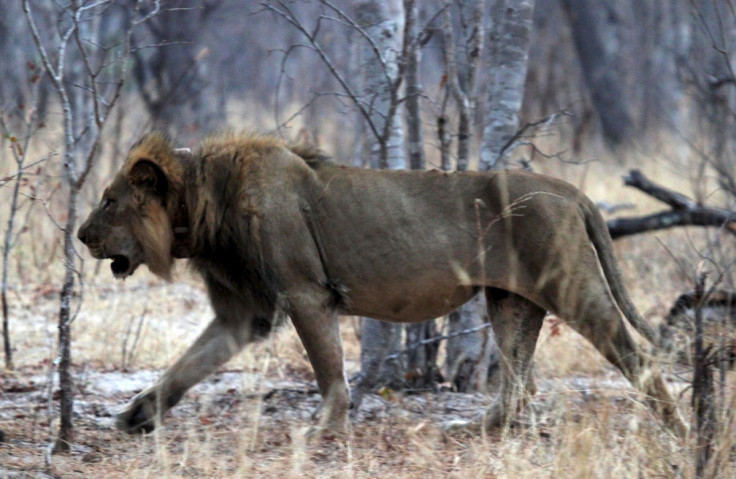Zimbabwe: Lion hunt raffle cancelled following global outrage

Zimbabwe company Martin Nel Safaris has decided to cancel its Win a Lion raffle following criticism from across the world. The event had kicked off a controversy as the raffle ticket winner would be allowed to kill a lion.
The $1,500 (£1,021) controversial raffle offered hunters "...an 18 day Lion Safari and the winner may choose between either a full lion trophy hunt or a photographic safari for two people during which a male lion will be collared for research purposes, and his permit removed from the hunting quota," stated the website of Bubye Valley Conservancy where the hunt would have been held.
The winning raffle number was supposed to be announced on 5 February at the Las Vegas Safari Club International show, a large-scale event for enthusiastic hunters. However, the raffle was cancelled after politicians, conservationists, animal lovers and various wildlife organisations around the world condemned the safari company's promotion of killing the king of the jungle.
In a statement following the raffle cancellation, the conservancy posted, "The intended raffle was the sole initiative of a professional hunter who has dedicated his career to conservation and the better understanding of wildlife. This fundraising initiative had nothing whatsoever to do with the University of Oxford Wildlife Conservation Research Unit (WildCRU) or the Directors of the Bubye Valley Conservancy.
"The Bubye Valley Conservancy is proud of their immense conservation achievements through some of the most difficult times in Zimbabwe's history. They are also honoured that the professional hunters who work here would spend their personal time and effort independently attempting to raise funds that will ensure the continued unbiased research on such a globally significant lion population."
The organisation went on to explain that a certain amount of hunting was required to keep the large number of lions in check.
"What do you do with excess lions? There is no space left in Africa for them; everywhere that can have lions already does, and their greatest threat is habitat destruction and intolerance by local communities that encroach on wildlife areas in competition for grazing with the natural prey of lions, and subsequently persecute them in retaliation for killing livestock.
"And, despite the sensation, responsible trophy hunting cannot significantly affect lion population density or long-term persistence — which is really the definition of sustainable resource management."
In 2015, Walter Palmer, an American dentist and big game hunter paid $50,000 (£34,073) to hunt down Cecil, a lion at the Hwange National Park in Zimbabwe. The photograph of him posing next to the wild cat's body drew global outrage. Since then regulated trophy hunting has become a hot topic of debate.
© Copyright IBTimes 2025. All rights reserved.






















